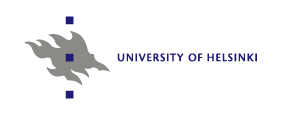 |
From Reassembling the Republic of Letters to
LetterSampo - Letters on the Semantic Web
|
Background - Republic of Letters on the Semantic Web
SeCo participated in the Digital Humanities EU COST action
Reassembling the Republic of Letters 1500-1800, 2014-2018,
led by prof. Howard Hotson (University of Oxford) and Dr. Thomas Wallnig (Universität Wien).
Eero Hyvönen (Aalto University and University of Helsinki (HELDIG)) led the Work Group 2 People and Networks
in the initiative involving over 30 countries.
Related to this topic, there was also the project
Cultures of Knowledge, phase III (2015-2017), at Oxford
where SeCo collaborated with the Oxford and Stanford Universities with the goal of designing a Linked (Open) Data
infrastructure, linked data service, and tooling for the underlying humanist scholarly community, based on the data
harvested in the Early Modern Letters Online (EMLO) database and web service.
LetterSampo - Historical Letters on the Semantic Web
Inspired by the international collaborations on the Republic of Letters and by the work on developing the Bio CRM data model for biographical and prosopographical data in various
Sampo portals, the SeCo group moved on to designing and implementing
- a general framework "LetterSampo", based on the
"Sampo" model and "Sampo-UI" framework,
for publishing and using epistolary data on the semantic web and
- a semantic portal demonstrator "LetterSampo - Historical Letters on the Semantic Web" that supports Digital
Humanities research on letter correspondences.
The idea and its implementation, described in (Hyvönen et al., 2023),
is that the general LetterSampo framework could be applied easily to create instances of epistolary portals by
changing the underlying data and with a little adaptation in the user interface.
In this approach the idea is not to create different UIs
to accommodate differently represented datasets but rather to transform datasets into a harmonized "standardized" form, so that the same UI solutions
and data-analysis tools can be re-used for different datasets.
The goal of using a "standard" datamodel for representing epistolary data makes it possible to aggregate data from different local data silos into
more global services, which is important, as letter data is typically available in geographically distributed repositories
depending on where the letters were sent to.
To demonstrate and test the LetterSampo framework, it was applied to three international datasets:
the CKCC corpus of the Huygens Institute in the Netherlands,
correspSearch dataset aggregated by the Berlin-Brandenburg Academy of Sciences, and
Early Modern Letters Online database of the Oxford University.
The framework is also being used in the
CoCo project
on Finnish correspondences in the Grand Duchy of Finland in the 19th century.
We welcome collaborations with researchers in humanities regarding epistolary data, and
have started to collaborate with the network scientists prof. Mikko Kivelä and
Javier Urena Carrion of Aalto University, with the goal of applying temporal network analysis tooling in epistolary data.
For a presentation and demonstration of the "LetterSampo - Historical Letters on the Semantic Web" system, see the video below:
From Republic of Letters 1500-1800 to LetterSampo from SeCo Research Group on Vimeo.
LetterSampo Demonstrator and Datasets Online
The online demonstrator "LetterSampo - Historical Letter on the Semantic Web" is available at:
https://lettersampo.demo.seco.cs.aalto.fi
based of the aggregated data of the CKCC and correspSearch datasets. We also published these datasets as linked open data at the Linked Data Finland platform, including SPARQL endpoints CKCC and correspSearch, and data dumps at Zenodo.org (CKCC dump and correspSearch dump).
Contact Persons
Prof. Eero Hyvönen, Aalto University and University of Helsinki, Helsinki Centre for Digital Humanities (HELDIG)
Doctoral candidate Petri Leskinen, Aalto University and University of Helsinki, Helsinki Centre for Digital Humanities (HELDIG)
Dr. Jouni Tuominen, Aalto University and University of Helsinki, Helsinki Centre for Digital Humanities (HELDIG)
Publications
2025
Eero Hyvönen, Petri Leskinen, Henna Poikkimäki, Heikki Rantala, Jouni Tuominen, Senka Drobac, Ossi Koho, Ilona Pikkanen and Hanna-Leena Paloposki:
LetterSampo Finland (1809–1917) Data Service and Portal: Searching, Exploring, and Analyzing Historical Letters and Their Underlying Networks.
The Semantic Web: ESWC 2025 Satellite Events, Portoroz, Slovenia, June 1 - 5, 2025, Proceedings, Lecture Notes in Computer Science, vol. 15832, pp. 80-86, Springer-Verlag, 2025.
bib pdf link Eero Hyvönen, Annastiina Ahola, Petri Leskinen and Jouni Tuominen:
SampoSampo: A Portal for Studying Enriched Data and Semantic Connections on a Cultural Heritage Linked Open Data Cloud.
The Semantic Web: ESWC 2025 Satellite Events, Portoroz, Slovenia, June 1 - 5, 2025, Proceedings, Lecture Notes in Computer Science, vol. 15832, pp. 67-74, Springer-Verlag, 2025.
bib pdf link Eero Hyvönen, Petri Leskinen, Henna Poikkimäki, Heikki Rantala, Rafael Leal, Jouni Tuominen, Senka Drobac, Ossi Koho, Ilona Pikkanen and Hanna-Leena Paloposki:
Searching, exploring, and analyzing historical letters and the underlying networks: LetterSampo Finland – Finnish 19th-Century Letters on the Semantic Web.
Digital Humanities in Nordic and Baltic Countries 2025 (DHNB 2025), Post-proceedings, University of Oslo Library, Norway, September, 2025. Accepted, forth-coming.
bib pdf Eero Hyvönen, Petri Leskinen, Henna Poikkimäki, Heikki Rantala, Jouni Tuominen, Senka Drobac, Ossi Koho, Ilona Pikkanen and Hanna-Leena Paloposki:
Searching, exploring, and analyzing historical letters and the underlying networks: LetterSampo Finland (1809–1917) data service and semantic portal.
Digital Humanities in Nordic and Baltic Countries (DHNB 2025). Book of Abstracts, 2025. Long papers.
bib pdf link 2024
2023
Senka Drobac, Johanna Enqvist, Petri Leskinen, Muhammad Faiz Wahjoe, Heikki Rantala, Mikko Koho, Ilona Pikkanen, Iida Jauhiainen, Jouni Tuominen, Hanna-Leena Paloposki, Matti La Mela and Eero Hyvönen:
The Laborious Cleaning: Acquiring and Transforming 19th-Century Epistolary Metadata.
Digital Humanities in the Nordic and Baltic Countries Publication, DHNB2023 Conference Proceeding, vol. 5, no. 1, pp. 248-262, University of Oslo Library, Norway, 2023.
bib pdf link 2022
Bernardo S. Buarque, Aline Deicke, Malte Doehne, Martin Düring, Heiner Fangerau, Catherine Herfeld, Charles van den Heuvel, Eero Hyvönen, Roberto Lalli, Malte Vogl, Lea Weiß, Dirk Wintergrün:
White Paper of the ModelSEN Workshop (April 2022). October, 2022.
bib link Jouni Tuominen, Mikko Koho, Ilona Pikkanen, Senka Drobac, Johanna Enqvist, Eero Hyvönen, Matti La Mela, Petri Leskinen, Hanna-Leena Paloposki and Heikki Rantala:
Constellations of Correspondence: a Linked Data Service and Portal for Studying Large and Small Networks of Epistolary Exchange in the Grand Duchy of Finland.
DHNB 2022 The 6th Digital Humanities in Nordic and Baltic Countries Conference, pp. 415-423, CEUR Workshop Proceedings, Vol. 3232, March, 2022.
bib pdf link Esko Ikkala, Eero Hyvönen, Heikki Rantala and Mikko Koho:
Sampo-UI: A Full Stack JavaScript Framework for Developing Semantic Portal User Interfaces. Semantic Web – Interoperability, Usability, Applicability, vol. 13, no. 1, pp. 69-84, January, 2022. Online version published in 2021, print version in 2022.
bib pdf link 2021
2020
2019
Howard Hotson, Thomas Wallnig, Jouni Tuominen, Eetu Mäkelä, and Eero Hyvönen:
People.
Reassembling the Republic of Letters in the Digital Age (H. Hotson and T. Wallnig (eds.)), pp. 119-136, Göttingen University Press, 2019.
bib link Howard Hotson and Eero Hyvönen:
Topics.
Reassembling the Republic of Letters in the Digital Age (H. Hotson and T. Wallnig (eds.)), pp. 137-148, Göttingen University Press, 2019.
bib link Eero Hyvönen, Ruth Ahnert, Sebastian E. Ahnert, Jouni Tuominen, Eetu Mäkelä, Miranda Lewis and Gertjan Filarski:
Reconciling metadata.
Reassembling the Republic of Letters in the Digital Age (H. Hotson and T. Wallnig (eds.)), pp. 223-235, Göttingen University Press, 2019.
bib link 2018
Jouni Tuominen, Eero Hyvönen and Petri Leskinen:
Bio CRM: A Data Model for Representing Biographical Data for Prosopographical Research.
Proceedings of the Second Conference on Biographical Data in a Digital World 2017 (BD2017), vol. 2119, pp. 59-66, CEUR Workshop Proceedings, Linz, Austria, 2018.
bib pdf link Biographies make a promising application case of Linked Data: they can be used, e.g., as a basis for Digital Humanities research in prosopography and as a key data and linking resource in semantic Cultural Heritage (CH) portals. In both use cases, a semantic data model for harmonizing and interlinking heterogeneous data from different sources is needed. This paper presents such a data model, Bio CRM, with the following key ideas: 1) The model is a domain specific extension of CIDOC CRM, making it applicable to not only biographical data but to other CH data, too. 2) The model makes a distinction between enduring unary roles of actors, their enduring binary relationships, and perduing events, where the participants can take different roles modeled as a role concept hierarchy. 3) The model can be used as a basis for semantic data validation and enrichment by reasoning. 4) The enriched data conforming to Bio CRM is targeted to be used by SPARQL queries in a flexible ways using a hierarchy of roles in which participants can be involved in events.
Jouni Tuominen, Eetu Mäkelä, Eero Hyvönen, Arno Bosse, Miranda Lewis and Howard Hotson:
Reassembling the Republic of Letters - A Linked Data Approach.
Proceedings of the Digital Humanities in the Nordic Countries 3rd Conference (DHN 2018), pp. 76-88, CEUR Workshop Proceedings, vol. 2084, Helsinki, Finland, March, 2018.
bib pdf link Between 1500 and 1800, a revolution in postal communication allowed ordinary men and women to scatter letters across and beyond Europe. This exchange helped knit together what contemporaries called the respublica litteraria, Republic of Letters, a knowledge-based civil society, crucial to that era’s intellectual breakthroughs, and formative of many modern European values and institutions. To enable effective Digital Humanities research on the epistolary data distributed in different countries and collections, metadata about the letters have been aggregated, harmonised, and provided for the research community through the Early Modern Letters Online (EMLO) service. This paper discusses the idea and benefits of using Linked Data as a basis for the next digital framework of EMLO, and presents experiences of a first demonstrational implementation of such a system.
2017



